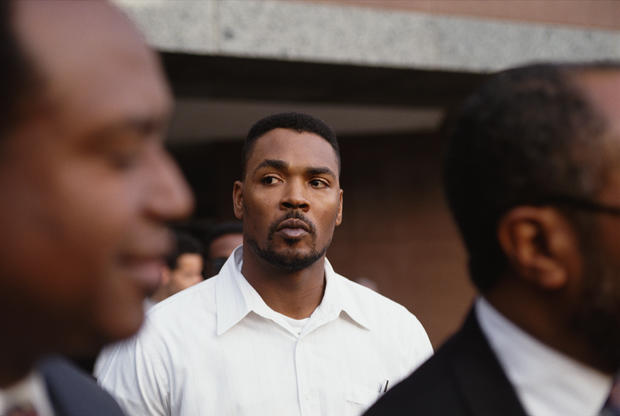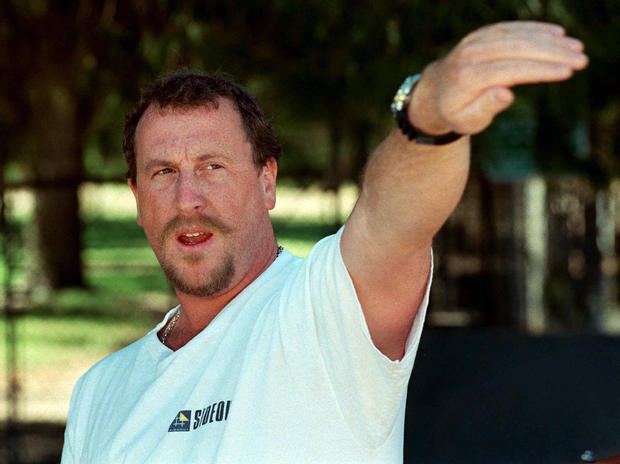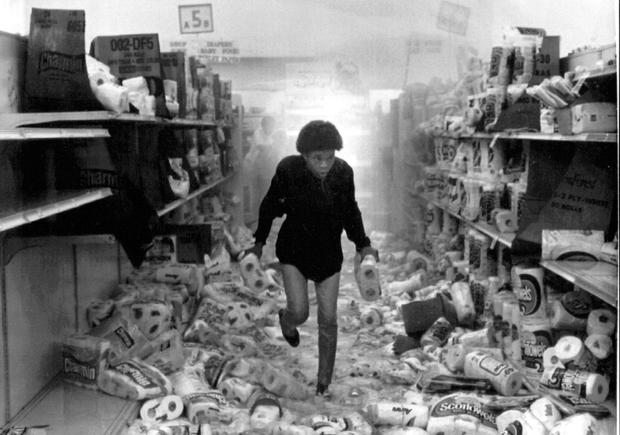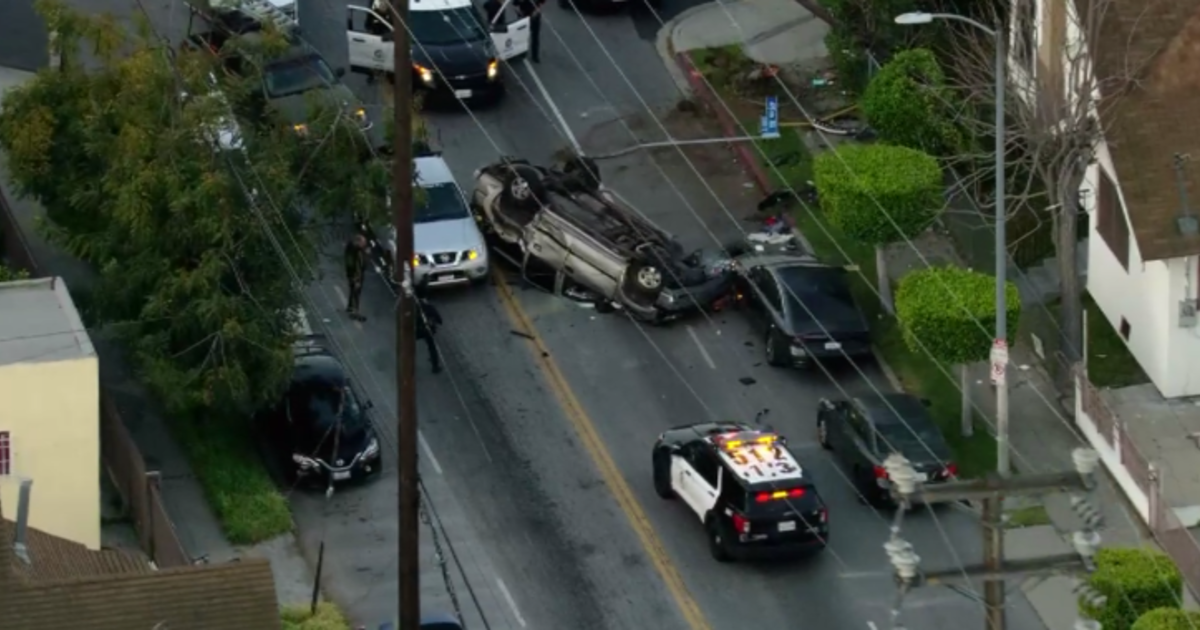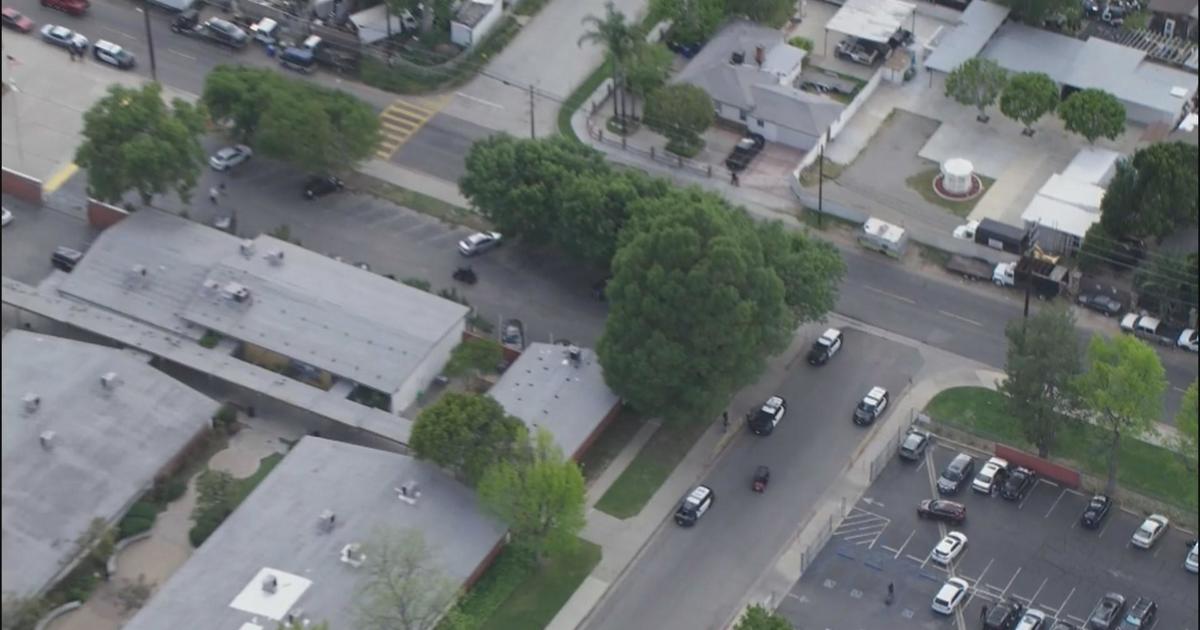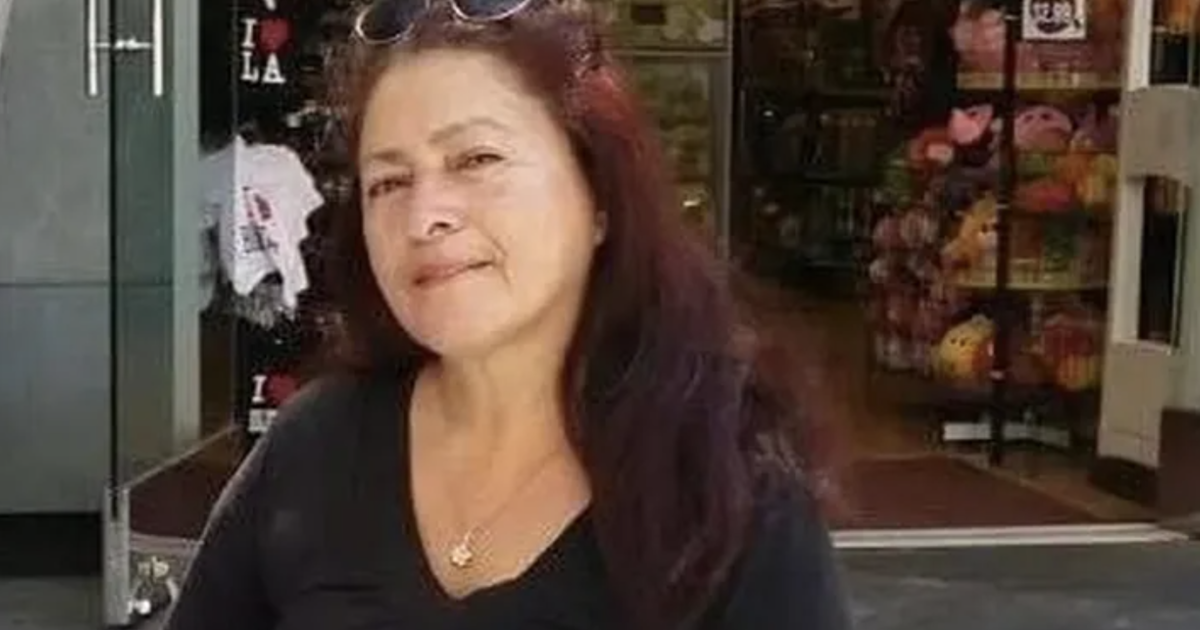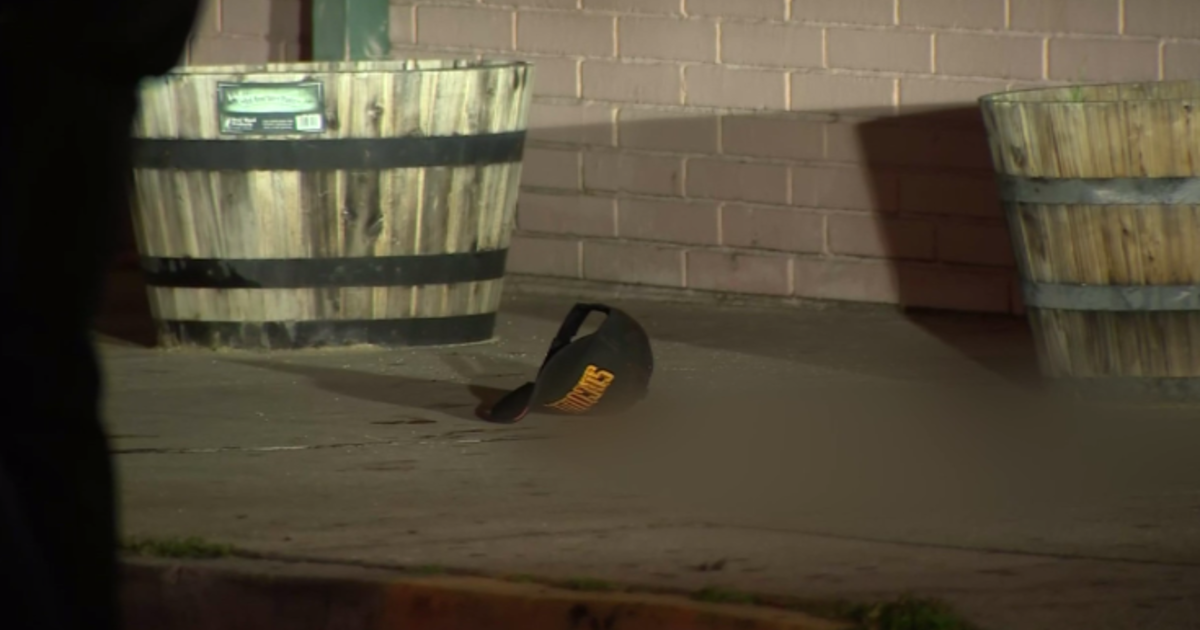George Holliday, Man Who Videotaped Rodney King Beating, Dies Of COVID
LOS ANGELES (CBSLA) – George Holliday, the plumber who videotaped the violent Los Angeles police beating of Black motorist Rodney King in Lake View Terrace back in 1991 – one of the most defining moments in L.A. history -- has died from COVID-19.
The 61-year-old Holliday passed away Sunday at a local hospital, Robert Wollenweber, a longtime friend and former coworker, told CBS News Monday.
Holliday wasn't vaccinated and was on a ventilator in recent days after contracting pneumonia, Wollenweber told The Associated Press.
On March 3, 1991, Holliday stood on the balcony of his apartment and used his Sony Video8 Handycam to record four white Los Angeles police officers using batons, Tasers and feet to subdue a Black man later identified as King, whose name quickly became globally synonymous with police brutality.
The grainy footage Holliday shot that night made the then-31-year-old plumber a pioneer of citizen journalism. The Sony video camera used to record the episode went up for auction last July, with bidding starting at $225,000, but it was unclear if it was ever sold.
King, an unemployed construction worker who had been drinking and was on probation for a robbery conviction, was instructed to pull over for speeding on a Los Angeles freeway. He eventually stopped his car in front of Holliday's apartment building, where LAPD took charge of the traffic stop that devolved into a violent confrontation as officers trying to subdue King pounded on him repeatedly, as others looked on.
King was left with skull fractures, broken bones and teeth and permanent brain damage.
The commotion outside his window awoke Holliday, who recorded the beating just after midnight and contacted KTLA5 later that day. The station became the first to air the footage that would be seen across the globe, becoming what would Monday be considered a viral video.
The video led to upheaval within the LAPD, sparking calls for the ouster of then-Chief Daryl Gates and prompting the appointment of the Christopher Commission to examine the inner workings of the LAPD and allegations of excessive force and institutional racism.
When the four officers involved in the King beating were acquitted a year later of excessive use of force by a jury in Ventura County, five days of rioting ensued in Los Angeles, resulting in 54 deaths, some 2,400 injuries, scores of destroyed buildings and other property damage, and more than 12,000 arrests. The acquitted police officers were later convicted of violating Rodney King's civil rights in a federal court trial.
King, a Sacramento native, died in Rialto on June 17, 2012, of what was described as an accidental drowning. He was 47.
King's daughter, Lora Dene King, issued a statement Monday reacting to Holliday's death, saying, "The King family will be forever grateful to George Holliday, who had the courage and conviction to hold the LAPD accountable in their brutal beating of my father Rodney. Our condolences are extended to his family and friends."
Holliday told The New York Times last year that he was still working as a plumber, never profiting from the video, which was still in the possession of federal authorities.
He told the paper he had purchased the video camera about a month before the King beating, and he grabbed it instinctively when he and his wife were awakened by the police ruckus outside his window.
"You know how it is when you have a new piece of technology," he told the paper. "You film anything and everything."
(© Copyright 2021 CBS Broadcasting Inc. All Rights Reserved. City News Service contributed to this report.)
